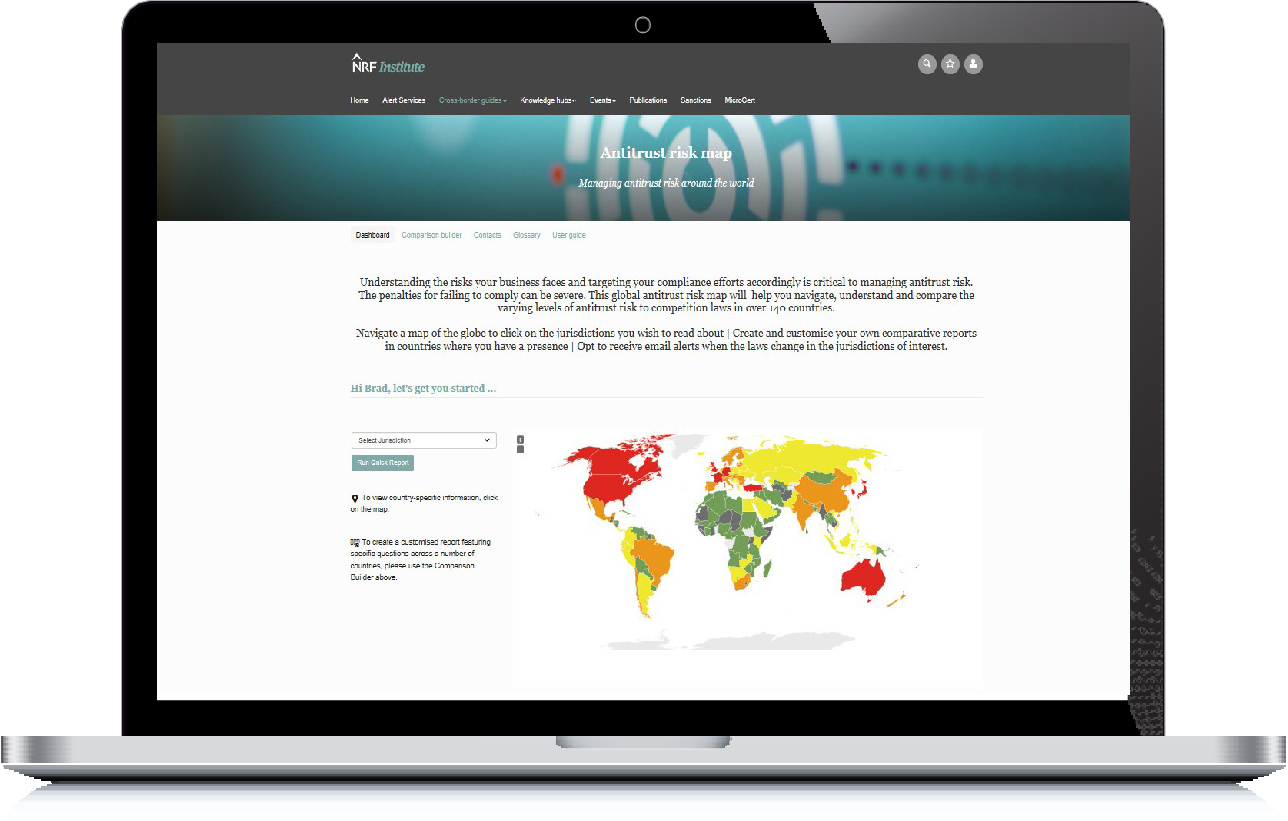COVID-19 (coronavirus) is naturally the focus of everyone’s attention currently given the unprecedented scale of the crisis. There are important implications from an antitrust and competition law perspective, including the extent to which competitors can collaborate during the crisis and the willingness of governments and authorities to provide formal or informal comfort that such collaboration to ensure supply of essential goods and services will not be deemed an infringement. We discuss the issues in our separate briefing.
Antitrust and competition compliance remains important during the COVID-19 crisis. Indeed, looking more broadly beyond the current crisis, antitrust/competition compliance has never been more important given the global proliferation of antitrust regimes in recent years. Over 140 jurisdictions now have antitrust/competition laws – so businesses that fail to adopt robust compliance measures face a real risk of infringing those laws and, consequently, considerable fines and other serious adverse consequences. The increased prevalence of follow-on damages litigation further amplifies this risk.
An effective compliance program has many benefits – most obviously, avoiding infringements by educating employees on what is/is not permitted. It also allows a business to implement procedures to detect potential antitrust concerns and take appropriate steps to mitigate risks before they occur or at an early stage.
A significant additional benefit is that many jurisdictions give “credit” to businesses that, despite committing an infringement, demonstrate robust compliance efforts – which can carry serious weight, reducing the level of penalty imposed. This crucial benefit is often overlooked, but a recent shift in policy by the US Department of Justice (DOJ) has refocused attention on the credit available.
In our new report (which can be downloaded here), we compare antitrust regimes around the world by reference to the new US approach and give guidance on how to create an effective compliance program. While the rules and specific requirements across different jurisdictions can be complex, our extensive experience dealing with authorities around the globe allows us to identify a number of consistent themes. Common points across all regimes are:
| The key to effective compliance is a culture of compliance. Antitrust authorities expect compliance to be endorsed by the company’s board and senior management (“tone-from-the-top”) and demonstrated at all levels of the business. Merely having a compliance program is not sufficient – it needs to be effectively implemented.
|
Compliance with antitrust laws should be part of a business’ broader approach to compliance with other laws, including anti-bribery and corruption laws and other white collar crime. Not only is this important to establish an effective compliance culture, but certain conduct could potentially be found to infringe more than one set of laws depending on which authority or regulator takes forward any investigation.
|
|
Whether a jurisdiction gives credit for a compliance program when setting fines should not drive a company’s decision about whether to implement a compliance program – having a compliance program should itself be the default position. However, a company can shape its program using any requirements or guidance about the features needed for a program to receive credit.
|
As well as ensuring a culture of compliance and adopting a risk-based approach, implementing procedures to detect and address breaches and regular monitoring and review of compliance are important to achieve an effective compliance program.
|
There is no one-size-fits-all approach to compliance – companies should undertake a risk assessment and ensure their approach is tailored to the risks they face.
|
Any business operating across borders should familiarize itself with the antitrust rules in different regimes and adapt its compliance program as appropriate.
|
Further information is provided in our report. If you would like to discuss any aspect of our report or antitrust compliance in general, please see our contact details at the back of the report and below.














